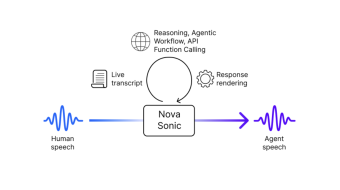AWS Infrastructure Services owns the design, planning, delivery, and operation of all AWS global infrastructure. In other words, we’re the people who keep the cloud running. We support all AWS data centers and all of the servers, storage, networking, power, and cooling equipment that ensure our customers have continual access to the innovation they rely on. We work on the most challenging problems, with thousands of variables impacting the supply chain — and we’re looking for talented people who want to help. You’ll join a diverse team of software, hardware, and network engineers, supply chain specialists, security experts, operations managers, and other vital roles. You’ll collaborate with people across AWS to help us deliver the highest standards for safety and security while providing seemingly infinite capacity at the lowest possible cost for our customers. And you’ll experience an inclusive culture that welcomes bold ideas and empowers you to own them to completion. AWS Infrastructure Services Science (AISS) researches and builds machine learning models that influence the power utilization at our data centers to ensure the health of our thermal and electrical infrastructure at high infrastructure utilization. As a Data Scientist, you will work on our Science team and partner closely with other scientists and data engineers as well as Business Intelligence, Technical Program Management, and Software teams to accurately model and optimize our power infrastructure. Outputs from your models will directly influence our data center topology and will drive exceptional cost savings. You will be responsible for building data science prototypes that optimize our power and thermal infrastructure, working across AWS to solve data mapping and quality issues (e.g. predicting when we might have bad sensor readings), and contribute to our Science team vision. You are skeptical. When someone gives you a data source, you pepper them with questions about sampling biases, accuracy, and coverage. When you’re told a model can make assumptions, you actively try to break those assumptions. You have passion for excellence. The wrong choice of data could cost the business dearly. You maintain rigorous standards and take ownership of the outcome of your data pipelines and code. You do whatever it takes to add value. You don’t care whether you’re building complex ML models, writing blazing fast code, integrating multiple disparate data-sets, or creating baseline models - you care passionately about stakeholders and know that as a curator of data insight you can unlock massive cost savings and preserve customer availability. You have a limitless curiosity. You constantly ask questions about the technologies and approaches we are taking and are constantly learning about industry best practices you can bring to our team. You have excellent business and communication skills to be able to work with product owners to understand key business questions and earn the trust of senior leaders. You will need to learn Data Center architecture and components of electrical engineering to build your models. You are comfortable juggling competing priorities and handling ambiguity. You thrive in an agile and fast-paced environment on highly visible projects and initiatives. The tradeoffs of cost savings and customer availability are constantly up for debate among senior leadership - you will help drive this conversation. Key job responsibilities - Proactively seek to identify opportunities and insights through analysis and provide solutions to automate and optimize power utilization based on a broad and deep knowledge of AWS data center systems and infrastructure. - Apply a range of data science techniques and tools combined with subject matter expertise to solve difficult customer or business problems and cases in which the solution approach is unclear. - Collaborate with Engineering teams to obtain useful data by accessing data sources and building the necessary SQL/ETL queries or scripts. - Build models and automated tools using statistical modeling, econometric modeling, network modeling, machine learning algorithms and neural networks. - Validate these models against alternative approaches, expected and observed outcome, and other business defined key performance indicators. - Collaborate with Engineering teams to implement these models in a manner which complies with evaluations of the computational demands, accuracy, and reliability of the relevant ETL processes at various stages of production. About the team Amazon Web Services (AWS) is the world’s most comprehensive and broadly adopted cloud platform. We pioneered cloud computing and never stopped innovating — that’s why customers from the most successful startups to Global 500 companies trust our robust suite of products and services to power their businesses. *Why AWS* Amazon Web Services (AWS) is the world’s most comprehensive and broadly adopted cloud platform. We pioneered cloud computing and never stopped innovating — that’s why customers from the most successful startups to Global 500 companies trust our robust suite of products and services to power their businesses. *Diverse Experiences* Amazon values diverse experiences. Even if you do not meet all of the preferred qualifications and skills listed in the job description, we encourage candidates to apply. If your career is just starting, hasn’t followed a traditional path, or includes alternative experiences, don’t let it stop you from applying. *Work/Life Balance* We value work-life harmony. Achieving success at work should never come at the expense of sacrifices at home, which is why we strive for flexibility as part of our working culture. When we feel supported in the workplace and at home, there’s nothing we can’t achieve in the cloud. *Inclusive Team Culture* Here at AWS, it’s in our nature to learn and be curious. Our employee-led affinity groups foster a culture of inclusion that empower us to be proud of our differences. Ongoing events and learning experiences, including our Conversations on Race and Ethnicity (CORE) conferences, inspire us to never stop embracing our uniqueness. *Mentorship and Career Growth* We’re continuously raising our performance bar as we strive to become Earth’s Best Employer. That’s why you’ll find endless knowledge-sharing, mentorship and other career-advancing resources here to help you develop into a better-rounded professional.





















